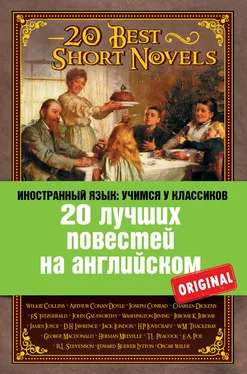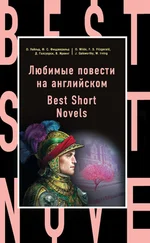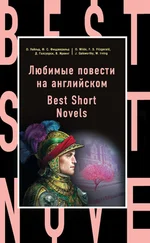Sioux City – a city in northwestern Iowa, on the Missouri River, founded in 1886
portico – entrance of a building with a roof supported by columns
Nemesis – 1. in Greek and Roman religion, the goddess of vengeance, that signified the disapproval of the gods at human deeds; 2. deserved and just punishment.
Divinity – a divine person or other being
By golly! – an exclamation of surprise
rhinestones – rock-crystal; gems imitating diamonds
to cut me off with a hot coal – idiom to disinherit, to leave little or no money
a Pomeranian – a popular dog breed
the Alderney cows – a breed of milky cows from Alderney, an island in the English Channel
‘Orfeo’ – an opera ‘Orfeo ed Euridice’ by Christoph Williband Gluck (1714–1787), written in 1762
Covent Garden – the Royal Opera House in London
Meyerbeer – Giacomo (Jakob) Meyerbeer (1791–1864), a German Romantic opera composer
the Golden Age – in Britain, the 18th century with its classical art
the Ravogli – Julia and Sophia Ravogli, popular Italian singers
Orpheus – the main character of ‘Orfeo ed Euridice’; an ancient Greek legendary figure with outstanding gift for music
Brighton – a town on the English Channel, in Sussex, a seaside resort 82 km south of London
Chelsea – an area of London known for its fashionable shops and expensive houses; it is also known as an artists’ quarter
Magdalenes – Mary Magdalene (1st century AD), a fallen woman cleansed by Jesus of seven demons; He freed her of her sins, and she became His devoted disciple. ‘Magdalene’ is a euphemism for a reformed prostitute.
French window – a large window that serves as a door to the balcony or to the garden
the Grand Stand at Epsom – a famous racecourse near Epsom, where the Derby is run annually
landau – a four-wheeled carriage with a folding roof
Venus – in Roman mythology and religion, the goddess of love
Steinberg Cabinet, Johannisberg – the best brands of the white Rhine wine
Raphael(1483–1520) – a famous Italian painter and architect of the Renaissance period, known for his Madonnas
Wagner – Richard Wagner (1813–1883), a German dramatic composer
Beethoven – Ludwig van Beethoven (1770–1827), an outstanding German composer of the Romantic and the Classical eras
Mozart – Wolfgang Amadeus Mozart (1756–1791), one of the greatest composers in the history of Western music
Handel – George Frideric Handel (1715–1769), an English composer of German origin of the late Baroque period
Gluck – Christoph Gluck (1714–1787), a German composer, best known for his opera ‘Orfeo ed Euridice’
Schumann – Robert Schumann (1810–1856), a German Romantic composer
Botticelli – Sandro Botticelli (1445–1510), an outstanding Italian painter of the Florentine Renaissance
Milton – John Milton (1608–1674), an English poet and historian, the author of the famous ‘Paradise Lost’
Tennyson – Alfred Tennyson (1809–1892), an English poet of the Victorian period
Titian(1488–1576) – the greatest Italian painter of the Venetian school of the Renaissance period
Delilah – 1. a biblical figure from the Old Testament, her name is a synonym of a treacherous woman; she betrayed Samson by revealing the secret of his strength. 2. the main character of ‘Samson and Delilah’, an opera by Charles-Camille Saint-Saëns
‘Che farò’ – ‘What shall I do?’, an aria from ‘Orfeo ed Euridice’ by Gluck
Putney – a district in Wandsworth, an inner borough of London, on the south bank of the River Thames
Hyde Park – the largest park in London in the borough of Westminster
Kensington Gardens – a large park in central London
the High Street – a shopping street in Kensington, a fashionable district in central London
Hammersmith – a borough in Western London on the left bank of the River Thames, to the west of Chelsea
Burgundy – wine (usually dry and red) from the region of Burgundy in east-central France
Richmond Park – a park near the River Thames
the siege of Strasbourg – a 50-days siege of Strasbourg, a city in western France, by the Germans during the Franco-Prussian war of 1870–1871
Mais enfin – qu’est – ce que tu fais là– danser, le dimanche! Viens, donc! – What’s the matter? What are you doing? Dancing on Sunday! Stop it! ( French )
Cleopatra(70–30 BC) – the queen of Egypt; after the Roman army defeated the Egyptian forces, Cleopatra committed suicide
Socrates(470–329 BC) – one of the greatest Greek philosophers whose ideas and principles exerted profound influence on the development of philosophy
codicil – an appendix to a will, usually changing or modifying some part of it
sal volatile – a solution of smelling salts used when a person feels faint or is unconscious
Make hay while the sun shines – idiom to make the best of an opportunity
Marguerite – one of the main characters in Goethe’s drama and Charles Gounod’s opera ‘Faust’
Читать дальше
Конец ознакомительного отрывка
Купить книгу












